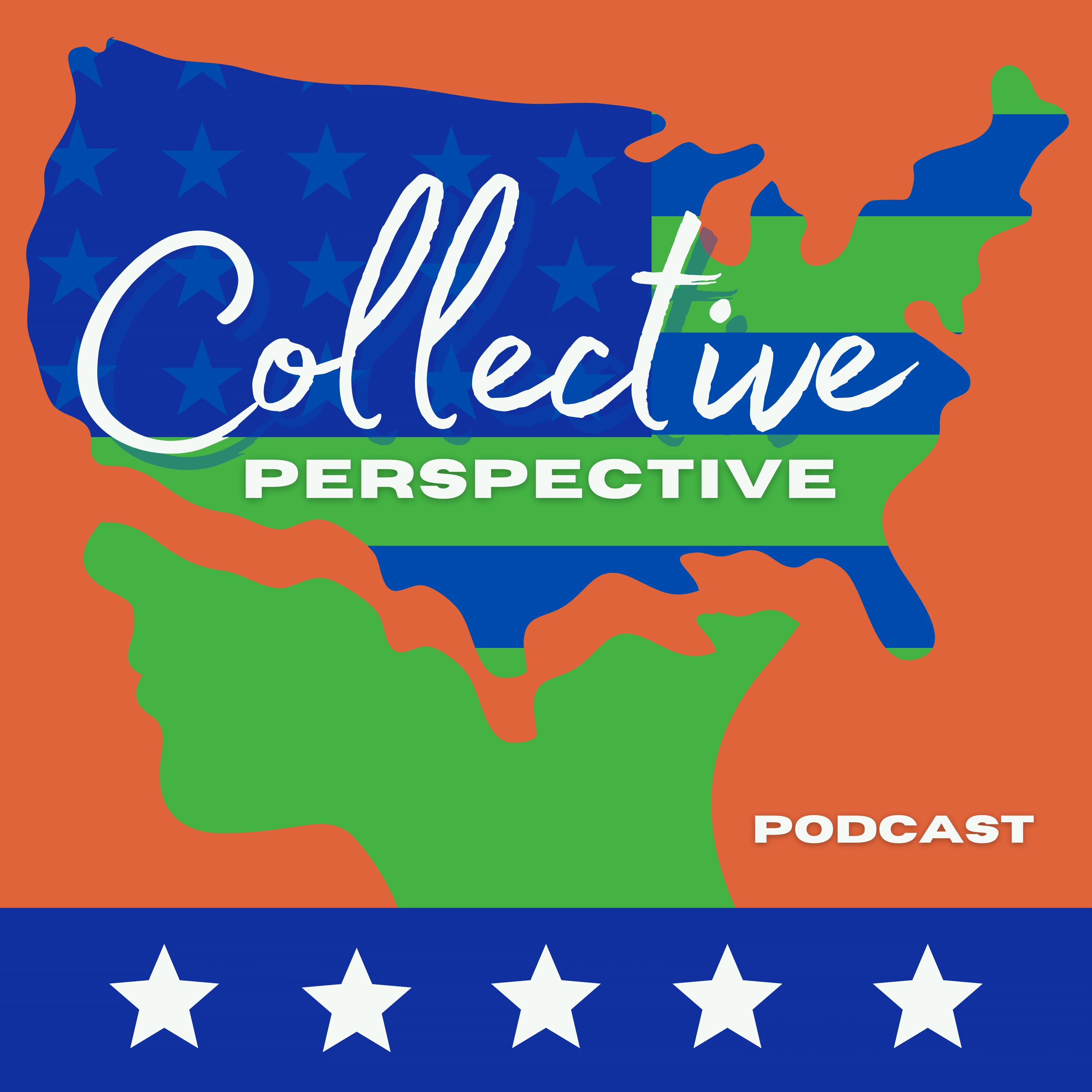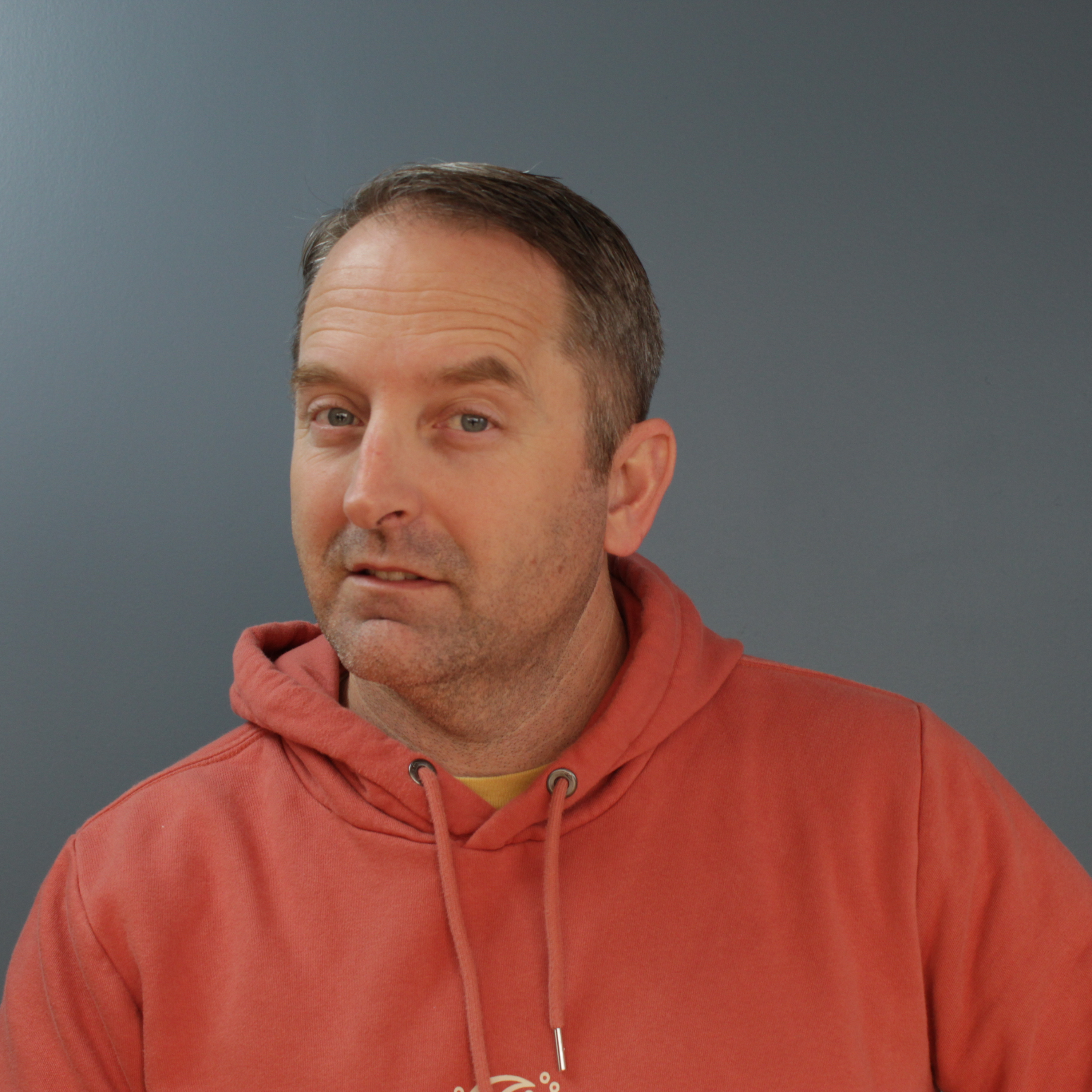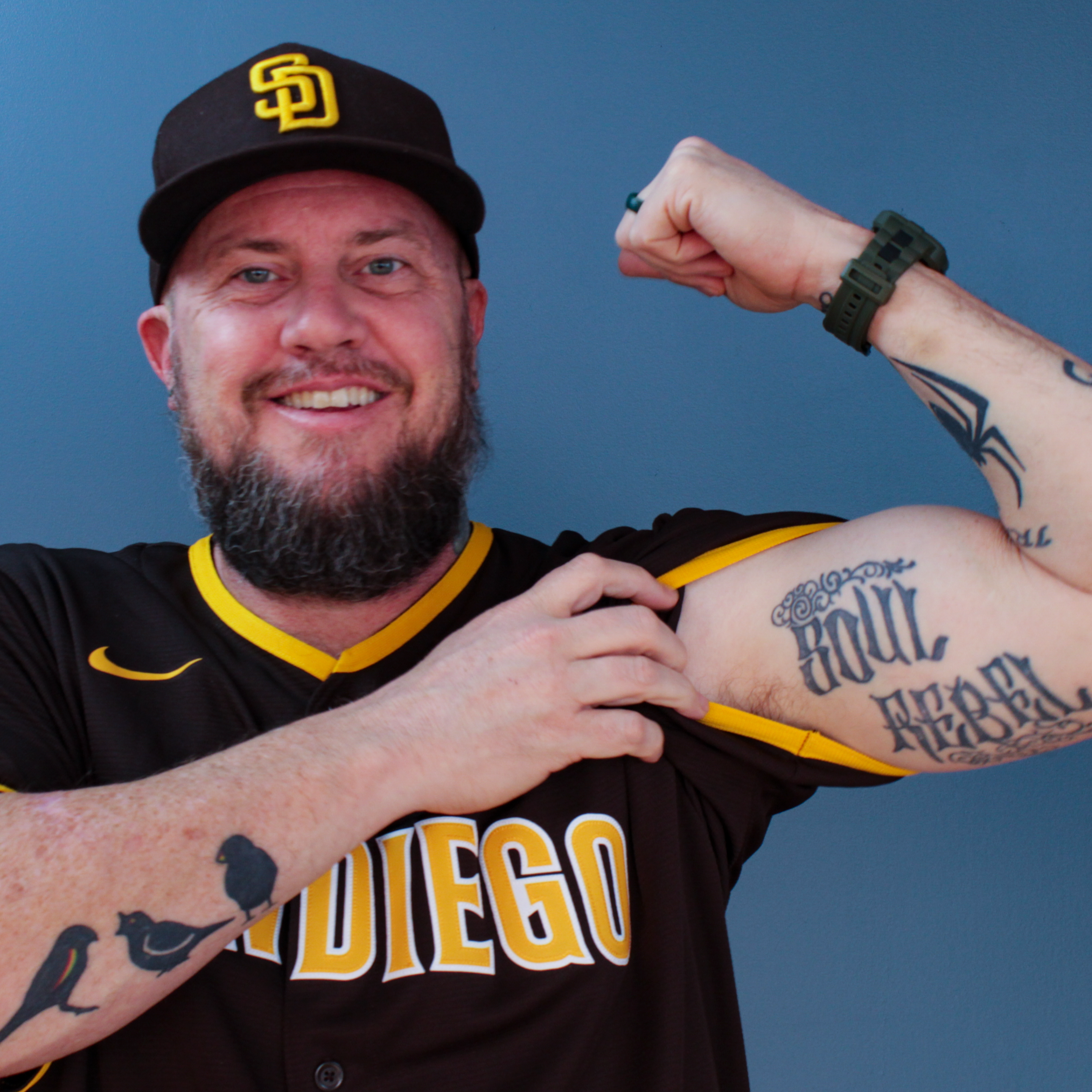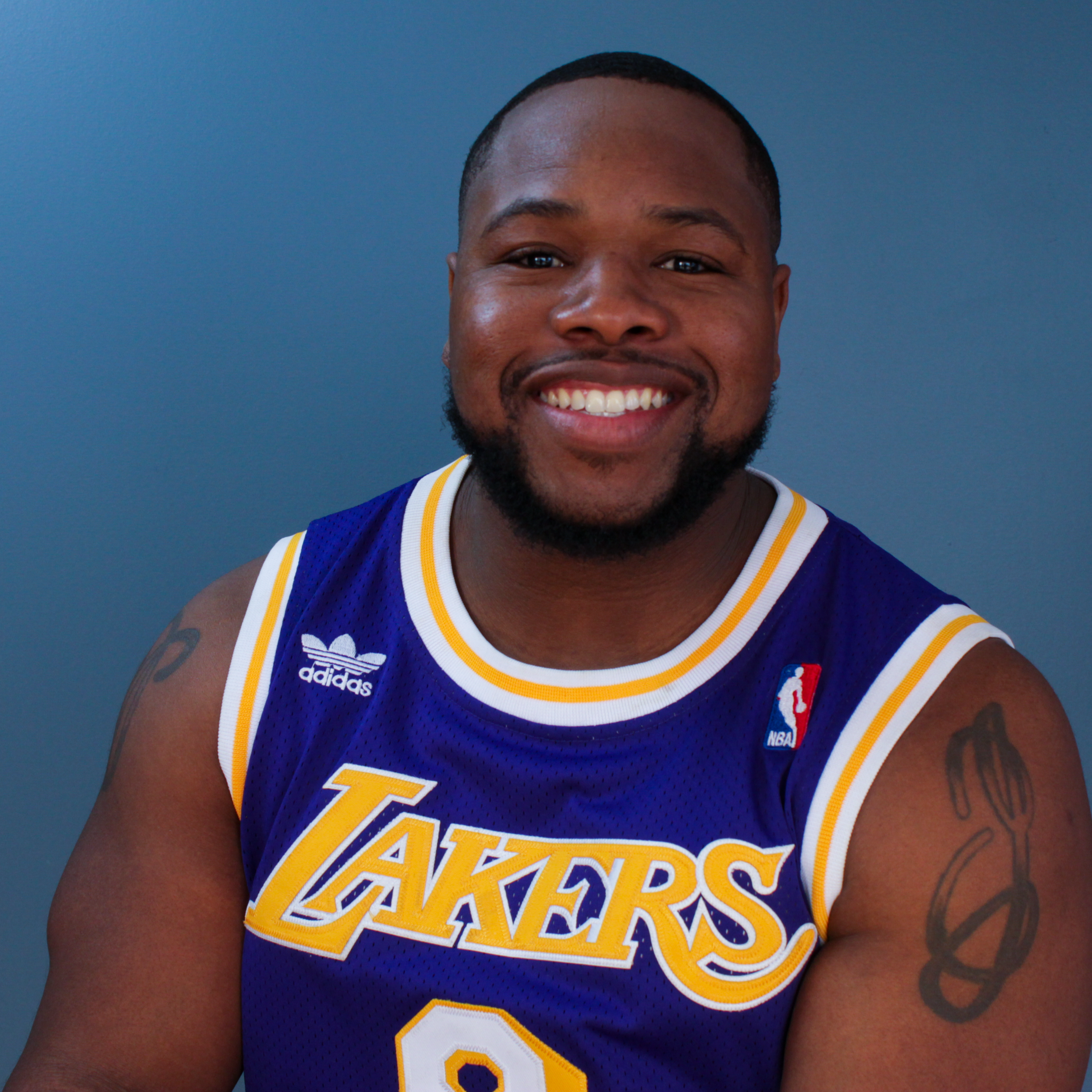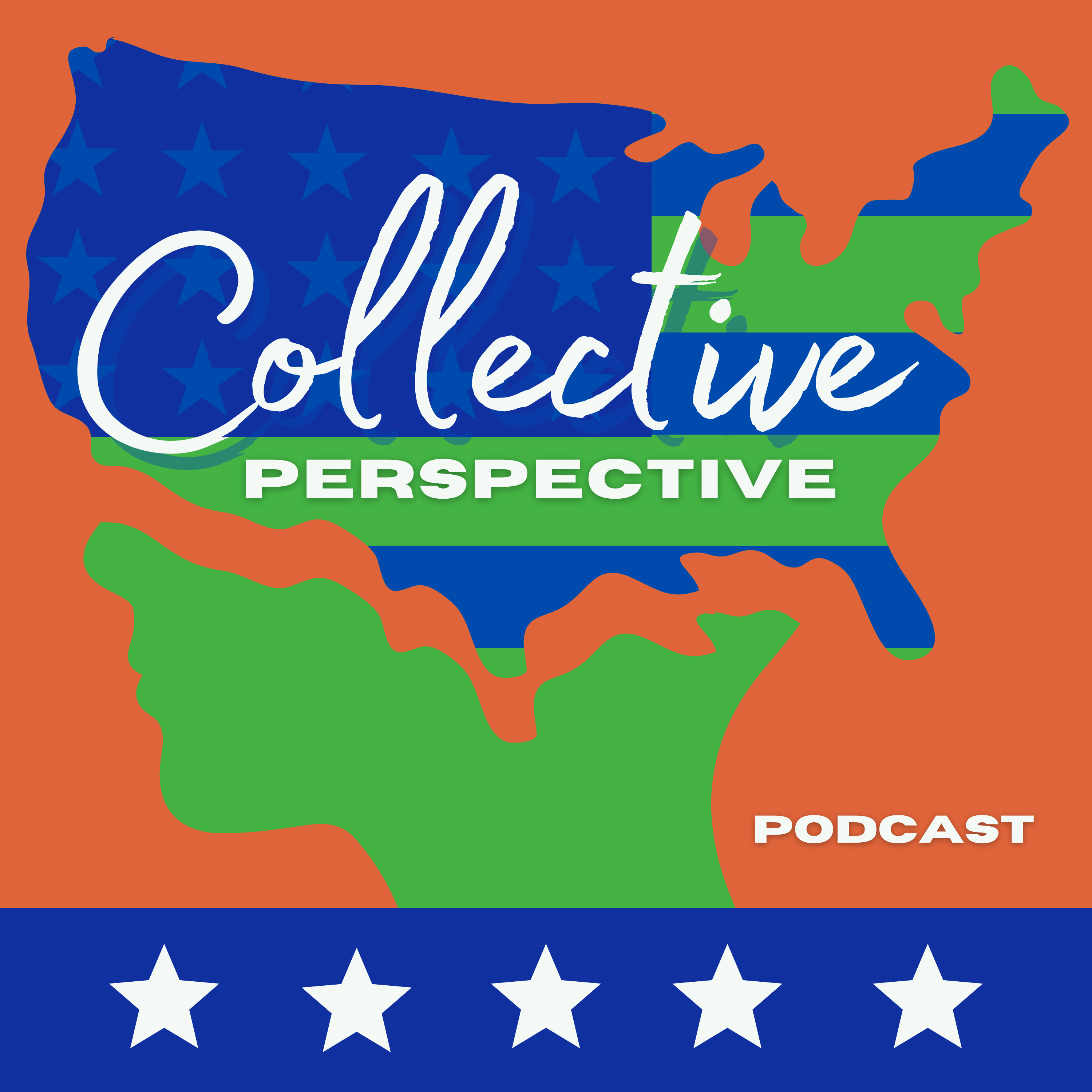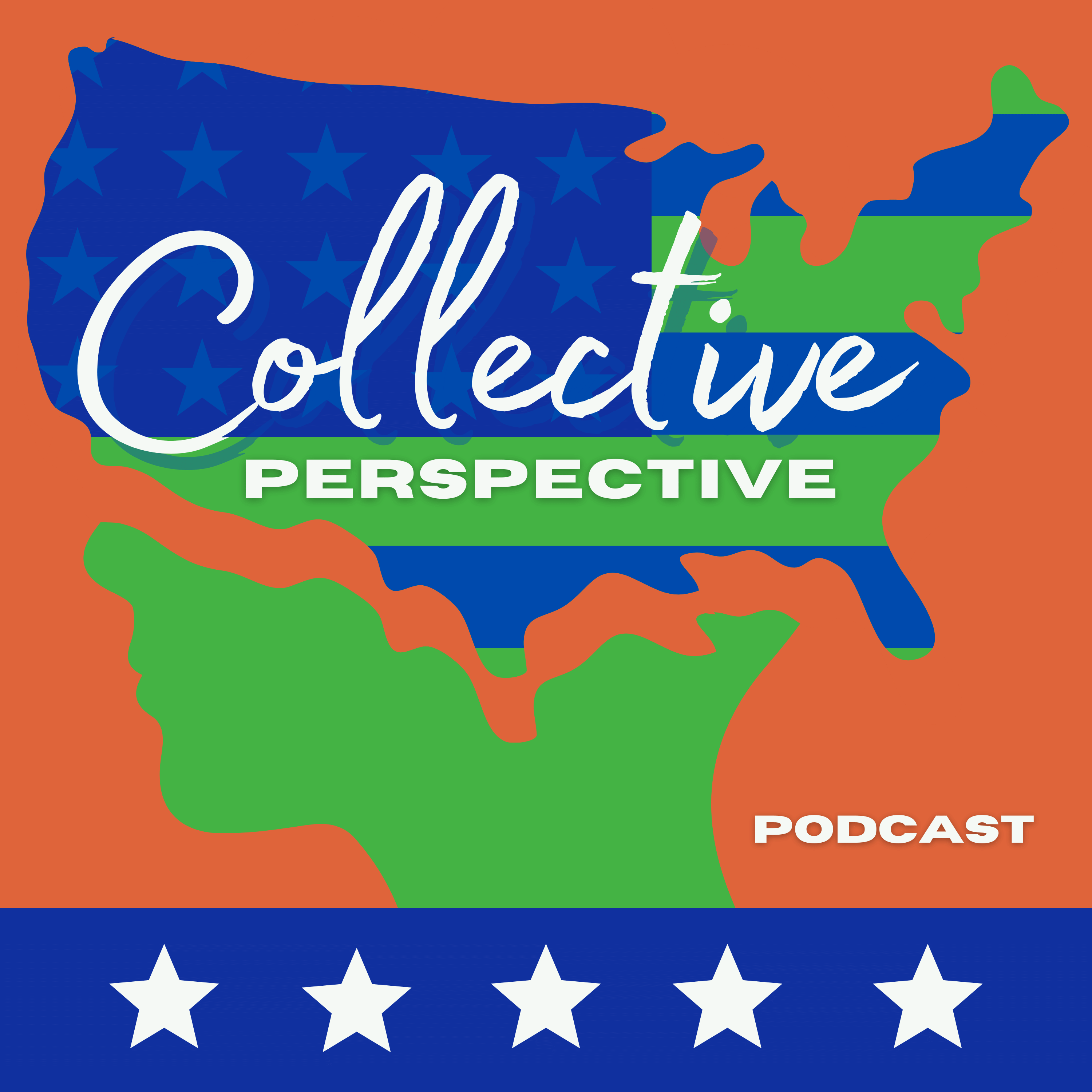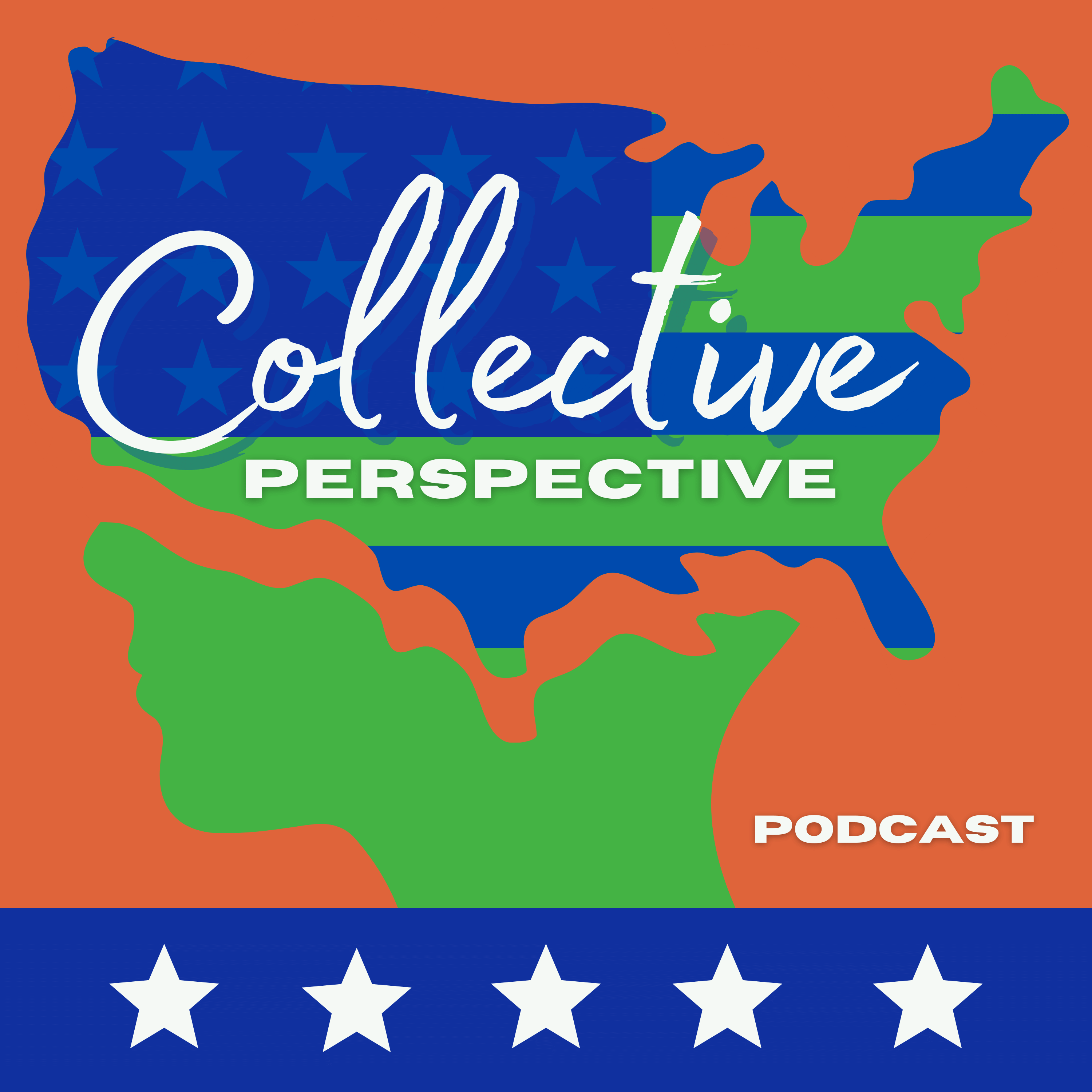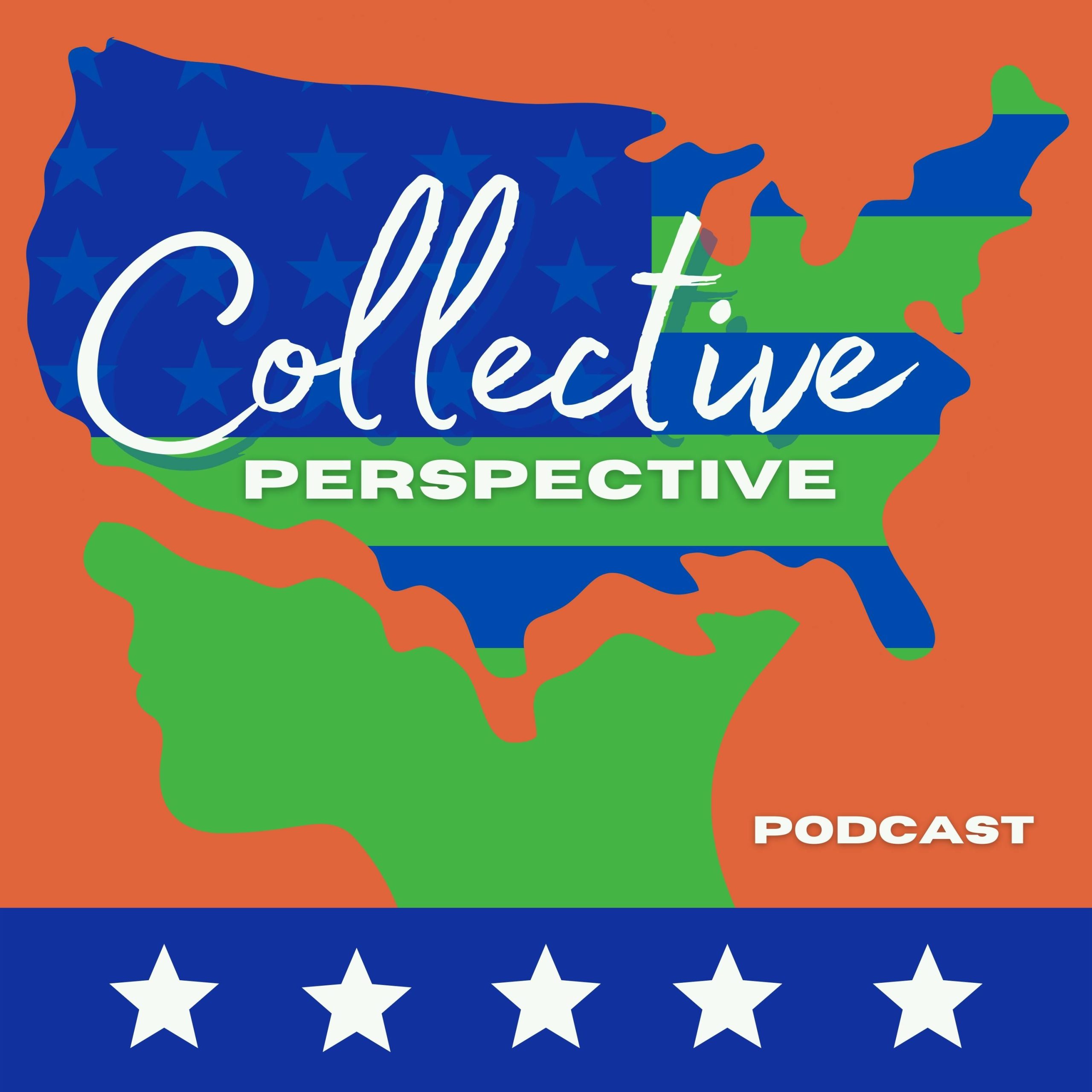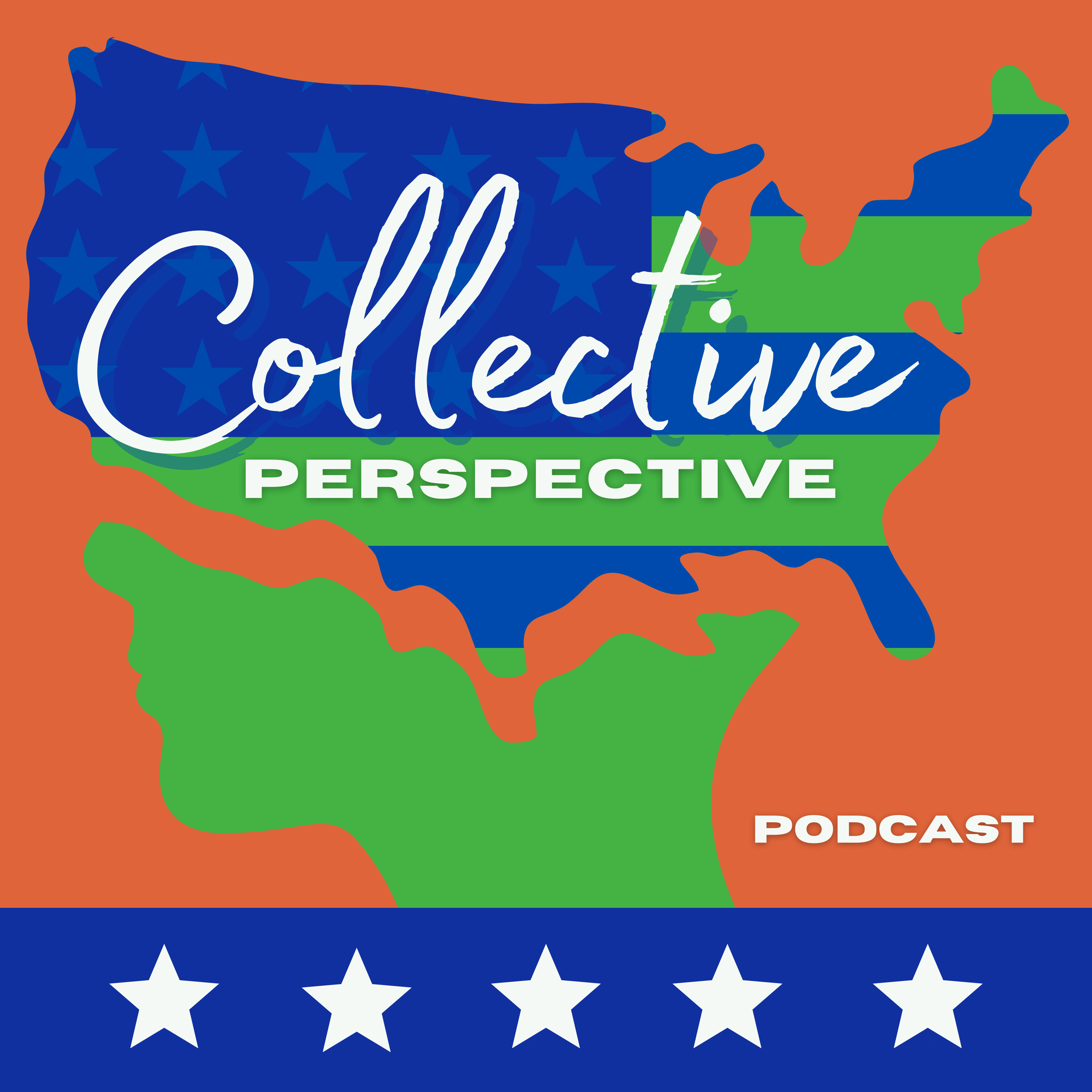Episode Transcript
This isn't just a podcast, it's a reminder. A reminder of what makes America Stronger isn't the headline or a hashtag. It's people from the ones building our homes to the ones rebuilding their lives, veterans, tradesmen, neighbors and volunteers, real people doing real things. Here we find common ground first, and then we work on our differences.
This is the collective perspective podcast where purpose, people, and progress mean. Hey everybody. Welcome back to the Collective Perspective podcast. My name is Jeff and I'm here again with my buddy Travis. Hey everybody. Welcome back. It's good to be here. Let's see what kind of a show we can have tonight.
Well, the type of show I wanted to have tonight, Travis, is I want to talk about grudges. I think. I think that's something that, uh, everybody, if you're not aware of, it can be kind of toxic to you. Uh, yeah. And you know, there's a lot of positive stuff that can happen to you once you've dealt with it or seen through it, gotten over it, get rid of that toxic, uh, buildup inside of you.
Um, gr uh, forgiveness is a very potent, uh, forgiveness is a very potent.
What, what's the word I'm looking for? For that? Uh, it's a very potent, uh, it's very strong in helping us move past our differences, our, our
well Travis forgiveness. I'm open stuff. Forgiveness opens the door. To, to positivity, um, and positive change and freedom. When you forgive somebody or you forgive somebody for something, um, you release that negativity towards that person, okay? Right. And so when you release that pos, that negativity towards that person, then they're no longer in their head.
You, you've heard the term, uh, you're living inside that person's head. Rent free. Baby, rent free. Well, that's the what I'm talking about. Yeah. When you let go and you forgive someone, even if they did something completely wrong to you or they murdered, I mean, I, I, you know, what are, what are the most worst thing they can do to someone?
Um, at the end of the day, if you forgive them, then you, you freed yourself. Really, that person's no longer in your head. Right? And that person, you know, the crazy thing is that person's not even thinking about you. Nor do they care. And I've seen it on, on TV many times where somebody says, oh, well this person killed my son, but I forgive him.
And they immediately, almost immediately, uh, express great relief after that. Uh, for those out there that are not the Christian fans, that is one thing the Bible teaches you is forgiveness. And that's exactly the, the example Travis gave is perfect, um, to that. And, um, I think holding grudges is, is not forgiving obviously.
And holding grudges can be for a multitude of different reasons. Yeah, there's, there's all kinds of way reasons to hold a grudge. Your ego. I can't do anything wrong wise. You know, your, your ego gets in the way of getting rid of that, uh, negativity. Yeah. Well, because if you dissect it, your ego doesn't think that you're wrong and that other person's wrong, and so you hold a grudge against him.
Um, people do this in politics a lot. Uh, I, this the crazy thing, and we've talked about this before, if you were just to sit down and not talk politics with that person, you would find a lot of commonalities and a lot of things that you want to be, uh, want to have in your life. Yeah. I I, I do agree that when you sit down and talk with someone on a personal level, you do.
Seep through any, any of the negativity or that divi divisiveness. Uh, one of the other reasons for holding a grudge is, uh, what is it? Justice, um, desire for justice or, um, revenge even. Even revenge. So desire for justice. And would that be because what, you're not getting it. They are or, uh, no. Yeah. Justice should be served.
I, I think justice should be served. I maybe more the accurate description of it. You know, if you feel that someone has wronged you, nothing has been done in turn to right that wrong. And you're looking for that justice. It's a fine line between justice and revenge, but I don't think it has to be wronged.
You. It could be like you're holding a grudge because I beat you. I beat you in this race, or I beat you to whatever goal before you did. And um, that could be a grudge shoe. And just accepting the fact that that person's your competitor and that person actually makes you stronger. You just don't realize it.
Uh, there you go. But then again, you know, one of the things my wife said to me lately was, uh, you know what I love about you the most? One of the things is your positivity. And she's like, you're always optimistic. And I believe that if you, if your mindset is negative and you're always playing the victim, then you'll always be the victim.
And so. Even though I've been victimized, I'm sure you've been victimized too in some regard. You can't hold that grudge against that person that victimized you. You need to be the beggar person, and I'm not the victim. I am the survivor. I am the one that superseded this person. I could tell you from personal experience to someone that wronged me, they're not in the position I am in in life right now.
They live at home with their mom. They've had cancer. And I don't, I don't wish any wrongfulness on anyone but the Hey, if, yeah, the, I'm getting kinda lost here myself. Uh, why are you getting lost? Just the, the whole, I don't think I have. A personal story about a grudge? Uh, I could probably think of one, but it might take me a little bit longer.
Nobody's ever wronged you. Yeah, I've been wronged, uh, uh, many times. It's here. Here's a good one. Um, you know, and a, a past, uh, girlfriend or boyfriend that somebody may have if they, uh, if they're cheated on, and that's, that's something you would hold a grudge for. Did somebody ever cheat on you? No. Oh, okay.
So you've had a, I'm just using a, just using a pretty, uh, undramatic life it seems. Um, there's no drama in your life? No. There's drama in my life, but it's drama's at work. More, more work drama. Yeah. Nothing to, nothing to be grudgeful or have any resentment over at work. It's just, it, it can be, you know, work is a different type of drama.
Um, but family, family drama is something Yeah, it can when they're drinking.
Um, no, I'm just kidding. That was an inside joke. We can't talk about online. I mean, we could, but then somebody would hold a grudge against us. Nah, I wish it hit us there. It was imbibing too much on a, on a vacation and, uh, but that was. Hmm. Uh, no. Uh, here, here's one. Someone when, when someone makes an accusation against you with nothing to back it up, it's hard to.
Downplay that accusation because you have no evidence and they don't either. It's just a blanket accusation, so you hold a grudge against them. I don't like this person because they made a false accusation against me. You know what, you're right. At that point, they're living rent free in my head, if I keep that resentment, that grudge, that, uh, that negativity, just let it go.
That can be the hardest thing to do, but it may be the best thing you could do. Yeah, I understand that. But on some climates or some context, I think you have to let 'em know. You have to let 'em know that you're dissatisfied with them. I don't think you should be silent and say that, but if they try to reconcile.
So there's one thing, there's one thing that, uh, if it goes for me and, uh, this, this might apply to a lot of people, is that. If somebody says something, uh, those are just words, right? So if they say something outta context or outta character, I may not want to react right away from it. And this, this might be something like you encounter with your wife or whatever.
You might have to like soak it in and like, well, what did she really mean by that? Um, because the context might be off and you could be completely wrong. And here you've. Created drama. You've blown it outta proportion in your own head without fully listening or understanding what was being said. Uh, as we said in a previous episode, many times we listen to respond not to understand, and you have to allow yourself, you have so have to allow the self, the person to come back and reflect on what they said and say, you know what?
I didn't mean to say it that way. And guess what? Instead of holding a grudge against what they say and walking away and being pissed off, you've allowed them to say and correct themselves. Because let's face it, I mean, people say stuff outta anger, they don't mean, or they may just be talking outta their ass, you know?
And for your loved one, you should be able to at least give them the courtesy of the doubt, like, and not like react right away. I say that with that is really hard, but I'm just saying it, it is really hard. But if you think about it and you focus about it, and uh, maybe the next time an altercation comes up with a loved one or a friend, someone, um.
There's that. Um, and sometimes when they say something, they're saying it and they don't quite understand how it sounds and all you really, the one of the easiest ways to do it is to reflect on it, uh, repeat it back to them. This is what I'm hearing you say. Is this what you mean? This is what I take from it.
And you have a, a healthy debate or conversation about that and you move past it. So you gotta introduce the idea. Well, maybe this is a prompt for me to say, introduce the idea of like, forgiveness is a gift to give yourself. Nobody else can give you that forgiveness. Would you agree? Yeah, I would agree that you, you have to initiate the forgiveness.
Uh, you know, many times we're all an eye for an eye type of thing, and that's not, if we, if we went eye for an eye for everything, the world would be blind.
That reminds me of a joke, um, a dark joke, dark comedy grandson sitting on the porch. This has nothing to do with this, but why not just tell a joke? Grandson says, uh, what is dark humor, grandpa? And he goes, you see that guy over there with no arms? Stand up and tell him to clap. And he goes, but Grandpa, I'm blind.
And the grandpa goes, exactly. There you go. There's the dark humor. That was pretty good. Thanks. And clean, right? So yeah, it was not a dirty joke. You looked at me like, oh my God, what was he gonna say? No, I looked at you like, you know, a man with no arms. This could go a lot of different ways.
Um.
Real life wins of forgiveness. Do you have any real life examples of forgiveness? Travis? Uh, again, nobody's ever wronged you. No, it's not, it's not that. How about people at, uh, the place in San Diego that mistreated you? Didn't, not mistreated you, like fondled you, but like mistreated you as in like, just your time and your respect, uh, disrespected you.
Okay. Okay. So, you know, thank you for bringing that up. Yeah. That was actually no helpful, uh, to remind me of a, a time when I did, I, I did feel, uh, wronged and held somewhat of a grudge, uh, but also. In my position, I, I felt like I was also under, I felt like I was also understanding I under sneezed Must have been the video guy.
Yeah, the video guy. Um, no, I, I felt almost betrayed if you would because I was doing, I was working pretty hard. I was doing everything I needed to. Uh, and then, you know, one thing leads to another and. A month later, I'm not working there anymore or not working like I should have been working there. So I, I was upset.
I, I did feel betrayed, but at the same time I was also thinking it over in my head over and over. And one, uh, I realized that, you know, this is part of. What I had promised to one, that, that person that, that I was with, uh, that I would be, um, I would be there for a certain amount of time and then because of the nature of the work, I'd have to leave soon.
And that was all based on the military. You know, I wasn't gonna be in one place for a long time, and I think they were growing. And moving around me, and I finally realized it and I let it go. I was like, all right, yeah, I, I understand it. Uh, I was able to wrap my own head around it and not let it bother me anymore because I, it was part of the growing process for me and that person.
I think there's a lot of instances where those types of things help you reevaluate yourself. Um, and if you look at it as reevaluate yourself and potential to grow, then here I am thinking optimistically again. But, um, not all the time does my head go there right away. My head goes to negative thoughts and I dwell on it, and it affects me.
And, you know, my past is kind of colored. I, I have, uh, military involvement and a lot of the things that affected me in the military wasn't combat related. And a lot of people wronged me over my life, so I have a completely different experience. I, I could actually say that two of my ex-wives wronged me and, uh, I'm on my third.
But, uh, you know what? I've forgiven all of them. I've forgive them, all of them, even though some did, uh, cause some tma dramatic things that I'm still dealing with. But, um. I've forgiven them and I'm able to be stronger for that. Maybe it just builds my stronger character. I have more love for people. I know.
So would you, would you say that you've, um, reconciled or forgiven? Is there a difference between the two? A re reconciliation and forgiveness? I think reconciled would be, let's try to be friends. Forgiveness doesn't necessarily mean that we're friends again. Okay. I think forgiveness is, I forgive you now we're moving on.
I don't care if you're in my life ever again, but if I wanna reconcile, then, then we're, we're, we're involved. Yeah. I think you, you reconcile when there's a benefit to be had by maintaining that relationship. Yeah. I mean. Your loved one or your spouse could accidentally do something wrong or I would hope they would not intentionally do something wrong.
That would be, that would be hard to forgive or. It hard to reconcile. Hard to reconcile, and it, it can still be hard to forgive, but once you've moved past the forgiveness, then you can really unpack and, and, and reevaluate yourself, as you said, I think a lot of people look at as forgiveness, as a weakness, and I don't think it's a weakness at all.
I think it's empowering if it is anything, um, and forgiving someone of some high caliber. You know, wrong wrongness that they've done to you, man, that that takes strong character and I think it's a big character builder and that's, yeah, that I agree with that. What are some practical ways, Travis, that you can learn to forgive someone?
You know, that's a really good question. I can tell you that prayer and meditation are one of those two things. I, I do hear that a lot. Um, I haven't, I don't think I've. I intentionally gone and said, uh, let me pray on it and see what you know, and, and have, uh, deeper guidance from within. Uh, and I've never been a, a yogi, so I don't know a lot about meditation.
Uh, well, I don't think you need to be a meditation or, I mean, you have, you're praying to some higher being, you know, obviously you're praying to God, but. Um, so yeah, I guess praying would be different 'cause you're actually praying to God for something where meditation is. Have you ever meditated before?
Uh, you know, I don't, not formally, uh, or something that I guess would be mainstream. Uh, a mainstream type of meditation. I like the chakra, Tibetan bowls, meditation. Uh, I was able to get to the point where. So just to kind of talk about meditation, if you even know you get there, meditation is completely cutting off any thought in your head.
And as you lay there and you try to meditate, you'll have these random thoughts just, did I do laundry? These random thoughts. And you have to fight 'em off. You have to fight 'em off with like, I have no thoughts. I have no thoughts. But once you get into a meta stance or a posture, now you, you know, when you usually close your eyes, it's red or black.
Uh, your field will turn completely white. And if you are using the chakra bowls, you'll actually see changes of color as the bowls change is pretty cool. So what are chakra bowls? Is that a sound or is it chakra? Chakra is a Tibetan bowl. Uh. Tibetan monks use it. Uh, the color is a source of energy, and the color of the body is alignment, is, is, uh, kind of the colors of the rainbow.
So it starts with like indigo, blue, green, and all the way down red, yellow, and each color has a meaning. Okay. So anyway, not to get too far into that, but those are some ways that you could. Um, learn to forgive. I don't know if you've never tried meditation, it's kinda like turning your iPhone off, but your brain well you and not having any thought.
And when you wake up or you, when you come out of it, you have clarity. Okay? You'll have the answer that you were looking for. It'll come to you. And another way that we can help, uh, or not, maybe not help, but another way to overcome or. Progress. Progress towards forgiveness would be journaling, writing down your feelings, uh, throughout the day, uh, using a journal to say, Hey, I felt this way.
What? And try to suss out what, what caused those feelings? And then go back to the root cause of it. You're trying to slang a little bit. I heard that. Were you impressed? No. So, hey, uh, thanks for listening. Uh, we ask you what do you do to forgive others or even yourself? I tell you a good story I'll close out.
Uh, this weekend we were going down to, to my in-laws, which is a two and a half hour drive, and about an hour, 49 minutes into it, I realized I lost, uh, I did not bring my blood pressure medicine. Ooh. Halfway through. If there was anything I could have left, I could have left other things, anything. I would've survived and been completely okay.
Nonetheless. We had to drive down there. We had to drive back. Sorry. And I was boiling in the car. My wife was driving. I was mad. I was so, I've never been so mad. Okay. I've been mad at myself before, but like this time I was so mad. Because I knew the, the implications of it was I have two smaller kids and man, at the end of the day, we left at 10:00 AM We got there at 5:00 PM But you know what though?
Time in the car with the kids, if they're awake and you're interacting with them like we used to do when we go on road trips, that's good. Time spent together. Yeah. But in today's time it's not like that. Everybody's got their iPad. Yeah, everybody's got a device. Yeah. There, there you go. That's my other vice or my, uh, thing where I need to forgive a little more quickly.
Would be on the road. Road rage is a thing. That's where I think a lot of us could do better with forgiving. Someone cut you off. Um, okay. They're driving a little aggressive. Think about when you're running late or if you get a call from a kid saying they need help right away. You gotta get back to your, to your, your family or your friend is calling for some assistance.
Yeah, so I try, it's hard. It's very hard when I'm driving because I take driving very seriously. Uh, I'm, I'm a, I'm a car guy, so that's, that's just me. Um, but to, to say, all right, they've probably got a reason for it. Back off. No need to keep hounding 'em. Let's be safe on the road. We're going fast. Always gotta be careful.
I think it's always a good thing to let go of road rage trips. Yeah. The, the one thing, the left lane campers, that's something that I always get upset about. Well, I'm a left lane camper, so you'll have to forgive me. Hey everybody, thanks for watching this episode. Uh, we hope you enjoy it. Please like and share, um, let us know.
Comment, anything are you're out there. Um, thanks again for watching.
